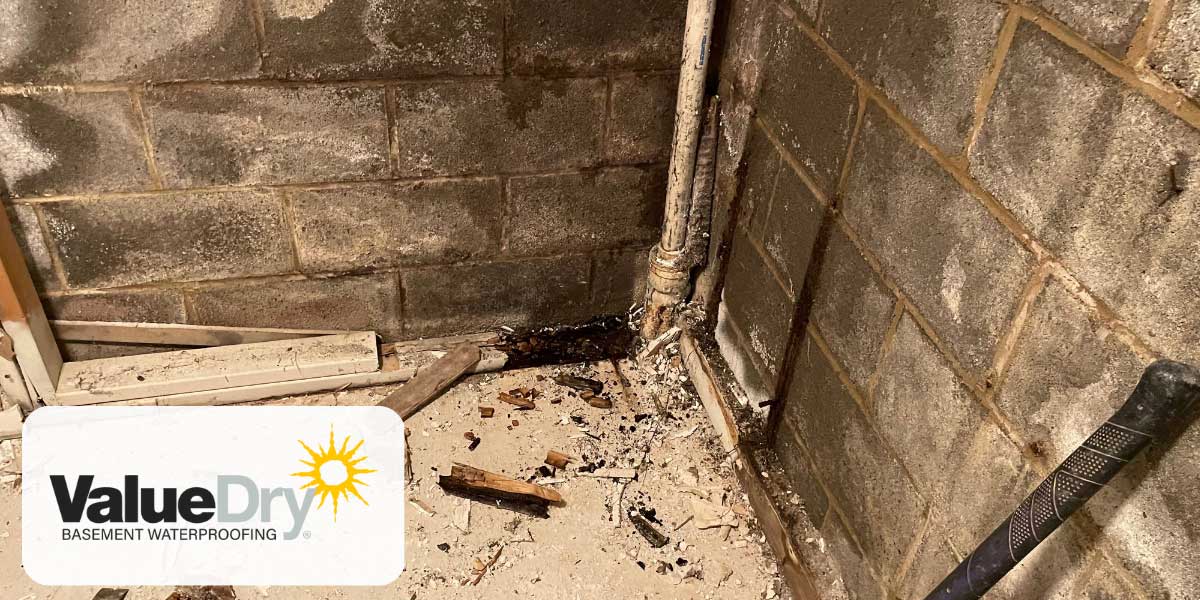What is Efflorescence?
- March 16, 2023
- No Comments
Efflorescence is a white chalky substance that can build up on your basement walls. The substance itself isn’t dangerous, but it is something to pay attention to. It is the residue of dissolved salts left on the surface of a porous material (such as concrete) after the water transporting those salts has evaporated.
porous material (such as concrete) after the water transporting those salts has evaporated.
Efflorescence most often results from groundwater seeping into the basement foundation walls. If you don’t address the water intrusion problem, your basement walls can eventually crack or buckle.
If you find this powdery substance on your concrete basement walls, it is a telltale sign of water seeping into your basement’s concrete walls. You’re more likely to see this in an unfinished part of your basement.
Is efflorescence common in basements?
Basements are the most common locations for signs of efflorescence, and it is a major warning sign of a moisture issue that could become something more. This is a sign that water is migrating through the concrete structure and could cause structural damage.
Efflorescence is more common than you’d think because many people have it and aren’t sure what it is.
Do all basements have efflorescence?
Not all basements have efflorescence. A space (basement, garage floor, crawl space) only forms efflorescence if there is a path for excess water to enter. If you see this, you probably have basement leaks, even if you can’t see them.
Excess moisture is the perfect environment for efflorescence to form. A wet basement is a serious problem, as the water can cause condensation, a musty smell in your basement, mold growth, and other basement water problems that severely affect your indoor air quality.
How do I prevent efflorescence in my basement?
The best way to prevent efflorescence is to stop water from touching the foundation from the outside. That means creating a controllable condition that stops water intrusion from a wide variety of common sources like basement windows, foundation cracks, faulty drains, and more.
Only a basement repair expert can help you determine what that is during an expert inspection. In our case, it’s a free, no-obligation inspection.
Does Efflorescence Mean the Basement Has Leaks?
Not necessarily, but only a basement waterproofing expert will be able to truly identify the cause of efflorescence on basement walls.
If you see chalky powder, mildew growth, or water stains, there is some sort of water leakage in the basement. It could be from wall seepage, floor seepage, or a plumbing leak. The best action is to call Value Dry Waterproofing for a free, no-obligation inspection.
Is efflorescence on the basement floor a problem?
Despite not being toxic, efflorescence is known to be a real problem. If basement efflorescence stains are present in any part of your otherwise dry basement, you should have it looked at by a basement expert. It’s likely there is a water leak that could be wall seepage, floor seepage, or a plumbing leak. Regardless of the degree of efflorescence, it will eventually cause damage to building materials
Is efflorescence harmful?
Efflorescence isn’t particularly harmful to humans but can cause irritation if inhaled or if you were to get some in your eye. However, it is harmful to building materials and can cause problems down the road by breaking down your building materials and affecting the structural integrity of your building.
It’s important to take action ASAP when you see salt deposits, white powder, or other efflorescence forms on your block walls, joists, or other surfaces. Contact Value Dry Waterproofing today!


